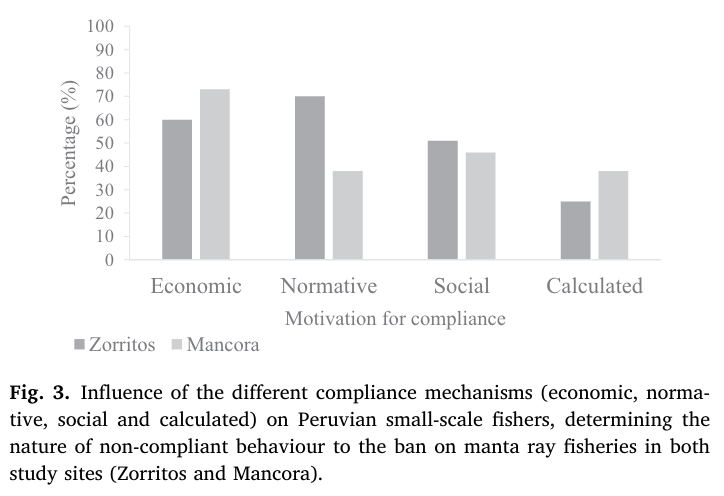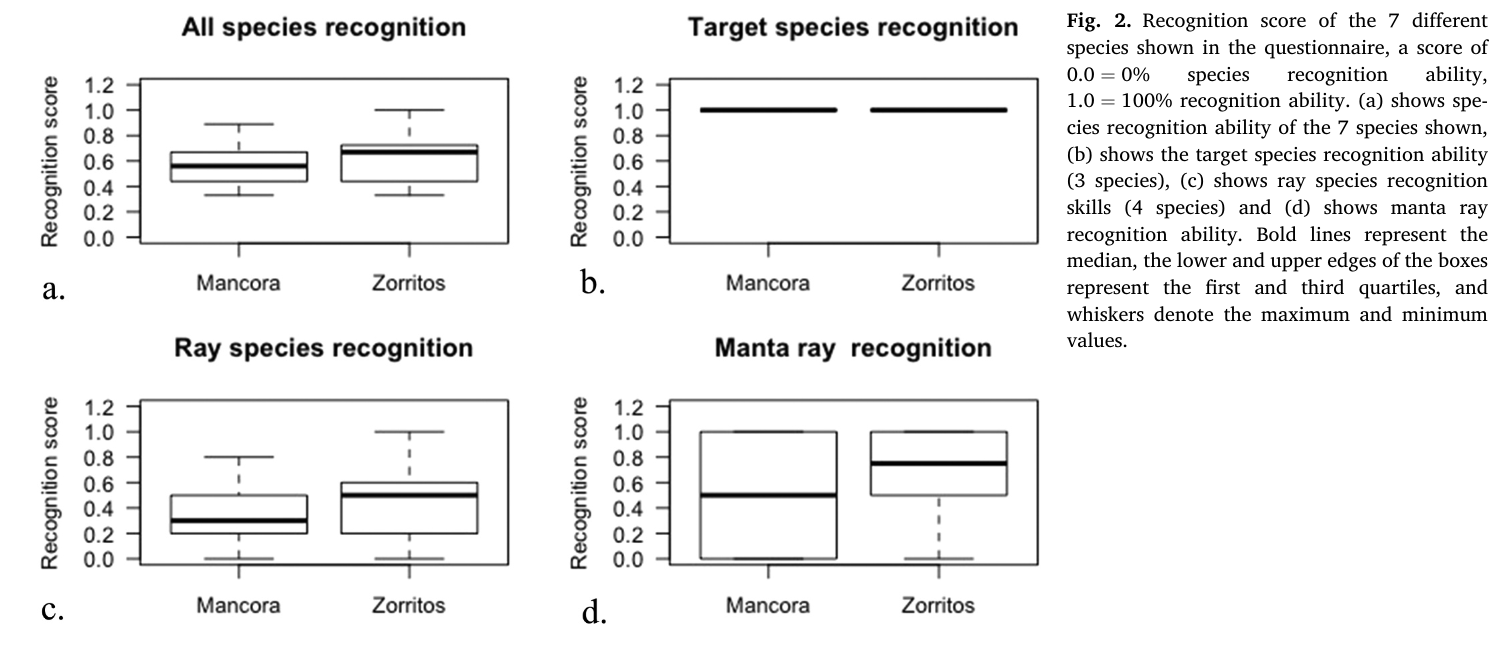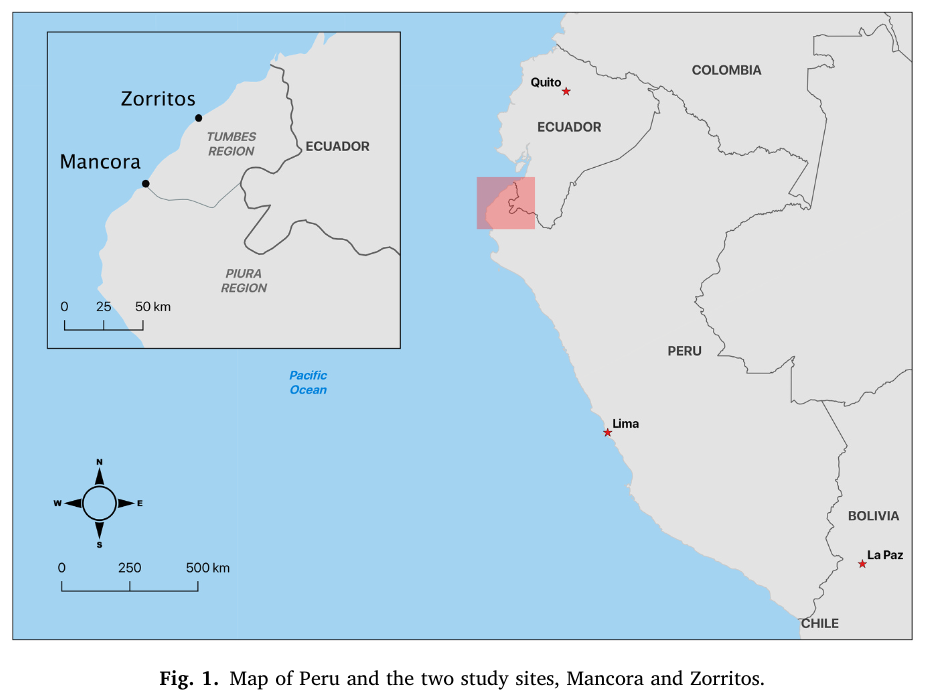Motivations for compliance in Peruvian manta ray fisheries
February 2021
Lucie Guirkingera, Stefany Rojas-Perea, Isabel Ender, Mark Ramsden, Charley Lenton-Lyons & Jonas Geldmann
Keywords: Fisheries Compliance • Legislation • Small-scale Fisheries



Summary: Fishermen's compliance with fisheries regulations is influenced by economic, calculated, normative, and social motivations. In Peru, the fishing ban on oceanic manta rays has not led to a significant decline in their catch. Questionnaires revealed that economic hardship, lack of legitimacy towards authorities, and low social influence to comply hindered compliance among small-scale fishers in northern Peru. This study suggests that engaging fishermen in local policy changes can lead to increased compliance.
Abstract
“Fishermen’s compliance with fisheries legislation is influenced by a combination of economic, calculated, normative, and social motivations. Compliance can be enhanced by fishers’ inclusiveness within management directives. Since the 2015 fishing ban on the giant oceanic manta ray (Mobula birostris) in Peru, there has been no significant decline in the catch of this protected species. Structured questionnaires were administered to small-scale fishers in two fishing communities in northern Peru, exploring their perspectives and attitudes towards compliance motivations as indicators influencing their non-compliant behaviour. Compliance was mostly hindered due to economic hardship, lack of legitimacy towards authorities driven by corruption and low social influence to comply. The diverging motivations to comply in both communities suggest the engagement of fishermen in fisheries management through local policy changes could lead to increased compliance. This study contributes to understanding fishers’ non-compliant behaviour in fisheries of lower commercial value.”
Author Affiliation
Conservation Science Group, Department of Zoology, University of Cambridge
The Manta Trust
College of Science and Engineering, James Cook University
Department of Sociology, University of Cambridge
Cambridge Social Decision-Making Lab, Department of Psychology, University of Cambridge
Center for Macroecology, Evolution and Climate, Globe Institute, University of Copenhagen
Funded by
University of Cambridge through the Tim Whitmore Fund from the Department of Zoology and the St Edmund’s College Santander Travel Award Fund
Marie Skłodowska-Curie

